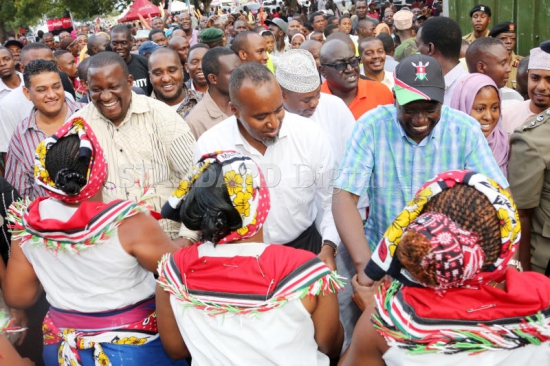×
The Standard e-Paper
Join Thousands Daily

Deputy President William Ruto Friday put on a brave face in light of Thursday’s ICC developments assuring Kenyans that the case against him is crumbling.
Through his lead counsel Karim Khan, Ruto said the historic decision allowing use of prior recorded witness evidence in his crimes against humanity case has, effectively, invented a new law based on cooked evidence.